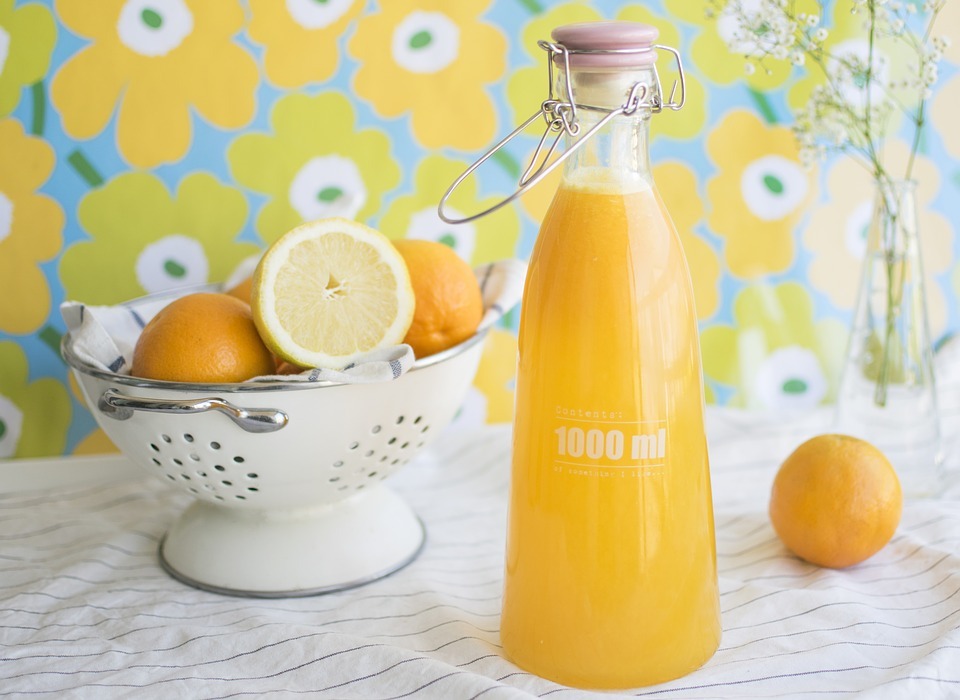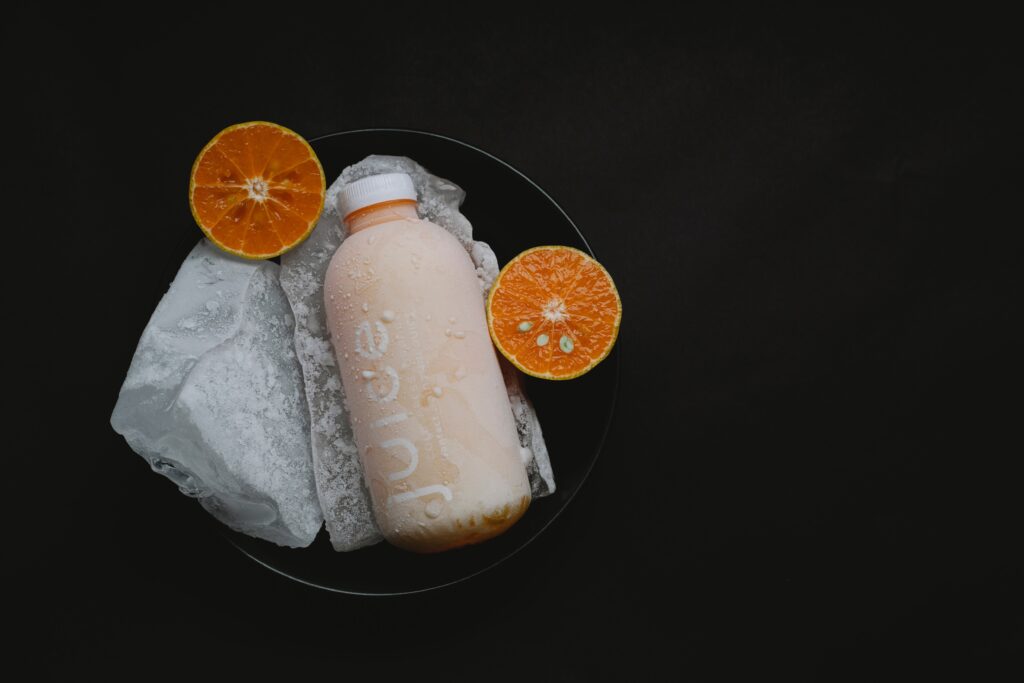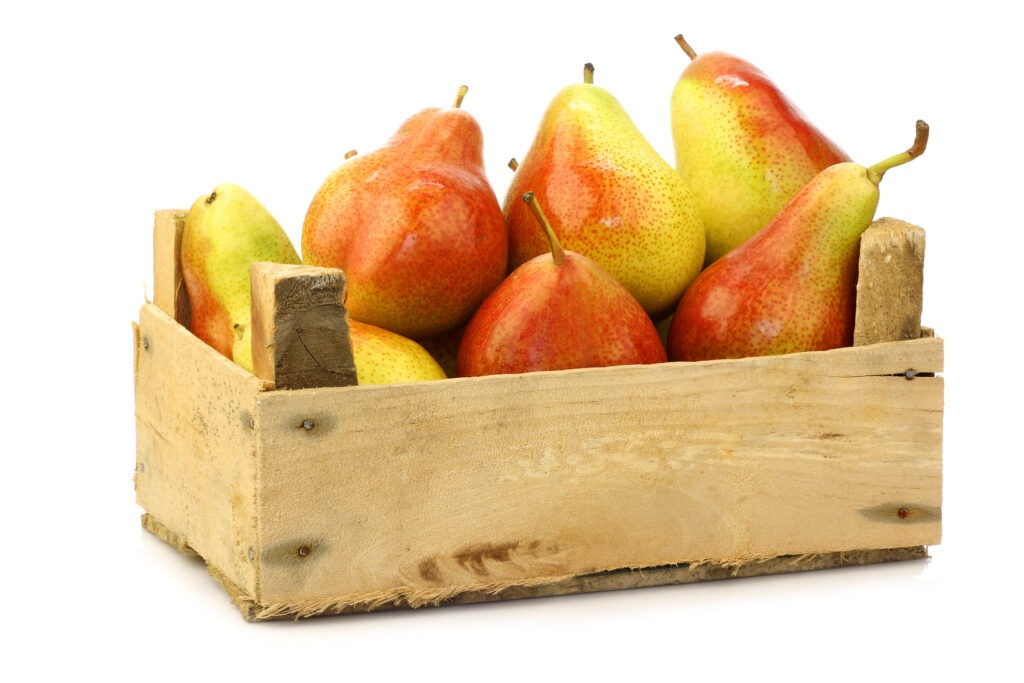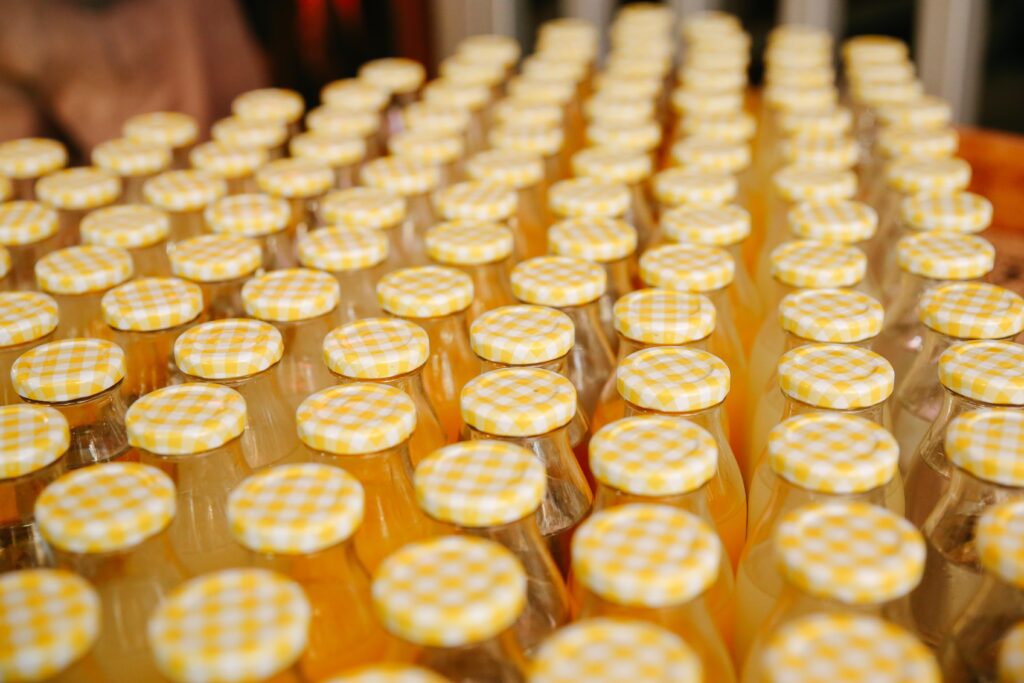When we talk about fruit juice, we’re talking about a non-fermented beverage that is made by mechanically pressing or macerating fruits. Fruit juices come in a variety of varieties, each with its own set of health advantages. For example, avocado juice increases the body’s natural energy; watermelon juice keeps the body hydrated and boosts metabolism; papaya juice supports healthy digestion; lemon juice fights viral infections; and pineapple juice lowers cholesterol. Fruit juice is one of the most often drank beverages worldwide as a result of this, along with the refreshing flavor and longer shelf life.
With more and more people opting for natural, healthier food and beverage choices, tapping into the market of organic, fresh bottled fruit juices is something worth considering if you want to get into the foodservice business.
Many traditional boxed fruit juices are full of artificial flavouring and preservatives. Because of this, more consumers, especially the health-conscious ones, are finding them less desirable.
Aside from the ready market, the start-up costs involved in this endeavour are relatively low. Moreover, the production steps involved are often minimal, especially when compared to other food operations.
Starting a bottled fruit juice venture, therefore, is a good business idea.
A Squeeze from History
The Middle East and Italy in the sixteenth century were the first places where juice was produced. Juice made from citrus fruits was discovered to provide nutritional advantages and health benefits in 18th-century Britain. A pasteurization technique was created for prolonged juice preservation times as early as 1869. Juice bottles were sealed before being lowered into a pot of hot water. Juice, however, was costly at the time because of issues with the import of foreign fruits.
The 1990s stood out thanks to “health trends” that increased juice consumption after decades of little interest in juice manufacturing. However, there were some subtle differences in how nutritious juice was seen back then. Juices were primarily made of sugar, hence they weren’t actually juice.
Customers’ requirements and preferences have altered since the early 2000s, when juice bars gained popularity. They started to learn more about the advantages of natural juice for health and the drawbacks of added sugar. There is now a rising demand for premium natural fruit juices in the juice industry. High-quality juices that are fresh, healthful, have a high nutritional value, and have a small environmental imprint are in great demand.
The ability to preserve food, eradicate microorganisms, and increase shelf life has been a human development for thousands of years. At first, the most often used techniques for that were curing and smoking. For many years, high-pressure processing has been the standard method for processing juices. (HPP). Manufacturers of food utilize it to extend the shelf life of their products, maintain vitamins, and render microorganisms harmless.
High hydrostatic pressure started to be applied to food preservation in 1899 for the first time. The inactivation of microbes was accomplished. At the beginning of the 1990s, commercial HPP units were created and built.
Is Fruit Juice A Successful Industry?
Fruit juice is a profitable industry since it is a tasty and healthful beverage. Additionally, it is quite cheap to produce, which makes it a wise alternative for companies trying to turn a profit. Selling fruit juice has certain drawbacks, such as the requirement to keep it chilled and the necessity to locate a reliable supplier of fresh fruit, but overall it is a profitable industry.
However, if you have little experience with producing bottled natural fruit juices and running a business, it can be challenging to determine where to start. From deciding on your niche and recipes to finding the right beverage ingredient suppliers to work with, you might stumble upon a few hardships along the way.
If you want to try your hand at the bottled fresh fruit juice business, here are some of the best tips you can follow:
1. Know the local laws regarding the production and selling of fresh fruit juice
Regardless of the business model you have in mind, there are different regulations you have to follow when you want to start a beverage business.
Visit the website of or get in touch with your city’s health department to know what permits or licences you need to start this type of venture. You may be required to get a business permit, food handler and sanitary permits, to name a few.
There are also specific laws regarding the sale of fresh juices. For instance, in some cities, you may be asked to pasteurise your products first before selling them wholesale.
If you plan to sell your products by retail, the local law might require you to make the juice in the same location where you will sell it.
Make sure you understand all these laws before proceeding to the other steps of setting up your new business.
2. Choose your niche
It is highly likely that you are not the only person thinking of starting a bottled fruit juice business. You also have to know that there are already several ones existing in the market.
As such, expect some competition and look for a way to stand out.
One way of doing this is by choosing a particular niche and marketing your business accordingly. Some of the most popular ones today include organic and energy juices and juice smoothies.
Once you have finalised this, create your menu. Since you are still starting, keep it simple and short. You can add more items or edit it over time as you figure out what sells and what doesn’t.
Try to limit your menu items or flavours to 10 to make it easy for your customers to decide and buy something. Keep in mind that too many choices can cause confusion and indecision among them.
Additionally, a smaller menu can also help you manage your supplies more efficiently. Otherwise, you will likely have an oversupply of different ingredients that you might not use and would only end up in the rubbish bin.
3. Look for your suppliers
Working with a reputable and reliable supplier is crucial when you start a bottled fresh juice business. You have to be sure that the ingredients you need are always of great quality. Moreover, you have to get an assurance that they will deliver the supplies you need every time you order from them.
Look for suppliers that provide the fresh fruits you require. Some providers may focus on a particular group of produce, while others may offer a wide range of items.
Since you are starting your business, focus on finding a supplier that offers the best quality products at prices you can afford.
There are other natural ingredients you can add to your beverages to improve their flavour. Examples of these are citral and linden ether, substances extracted from plants.
If you want to add these ingredients to your products, find a trustworthy supplier that carries these and work out a deal with them.
4. Invest in your production equipment and packaging supplies
If you are thinking of operating on a small scale first, a good-quality juicer can help you get started. This machine is enough to help you extract juice from fresh fruits.
The other pieces of equipment you need are blenders to combine different flavours and a fridge or freezer for storing your bottled juices.
Other tools you need are knives, chopping boards, funnels, and storage containers.
If you already have these items, you can use them for now and look for additional funding to invest in commercial types later on once your business starts to take off. Moreover, as your business grows, you may need propeller agitators for efficient mixing in larger-scale production and to ensure the quality of your juices remains consistent.
Additionally, think about your packaging. Your beverage should be packed in a way that customers find appealing.
Look for durable, appealing glass bottles so that the juice maintains its good quality for a period of time before your customers drink them.
To keep in line with your healthy theme, try to look for bottles made of eco-friendly materials and encourage customers to recycle them. Use biodegradable paper and other items for printing the label you will place around the containers as well.
5. Select your business model
There are different ways to sell bottled fruit juices.
The first option is to set up a home-based store and sell your products online. You can then deliver your customers’ order through a delivery service.
Setting up a brick-and-mortar business is another option. Juice bars are highly popular not only in gyms and fitness centres, but also in malls and just about everywhere. Since your store is smaller, your rent for space will be more affordable.
Moreover, you can sell your bottled fruit juices to customers who visit your store and your website.
Lastly, because food trucks are still popular attractions, you can also consider this mobile option to get more customers.
6. Market your product
Finally, when you have everything in order, work hard to promote your fresh and healthy bottled beverages.
Promote your product as a healthy beverage and highlight what’s different about it. Use social media for marketing them and engaging with customers who reach out to you.
Make sure you create posts that catch the eye of consumers. Aside from texts, share great photos and videos of your fruit juices on your social media accounts.
If you want to run a website, try to have this set up and ready to use before you launch your business.
If you love fresh, natural fruit juices and have great recipes for these, consider earning some money from something you like doing and start your own bottled beverage business.
Fruit Juice Market Trends
Globally, people are drinking less soft beverages like colas and flavored sodas because of their high sugar content, artificial coloring, phosphoric acid, artificial sweeteners, and caffeine, all of which can have harmful effects on the body. As a result, many customers are switching from carbonated beverages to natural fruit juices.
- Consumption of inexpensive, nutritious, and rapid forms of nutrition like packaged fruit juices has grown as a consequence of consumers’ changing lifestyles and eating habits, which has fueled the market’s expansion.
- Manufacturers are presenting a broad variety of tastes and creating fruit juices without preservatives and sugar in an effort to increase the consumer base. In addition, the expansion of the food and beverage sector is increasing demand for fruit juices globally.
- Due to a lack of infrastructure and storage options, several players were previously afraid to offer their goods in emerging nations. Although more companies are now prepared to invest in these sectors due to the increase in organized retail outlets, this is anticipated to support the expansion of the fruit juice business.
AUTHOR BIO
Lamia Rochdi is the Marketing Manager at Bell Flavours & Fragrances EMEA. A successful family-owned business, Bell’s core competencies include customized solutions for the food and beverages industry, the household and personal care sector, and the perfume industry.




